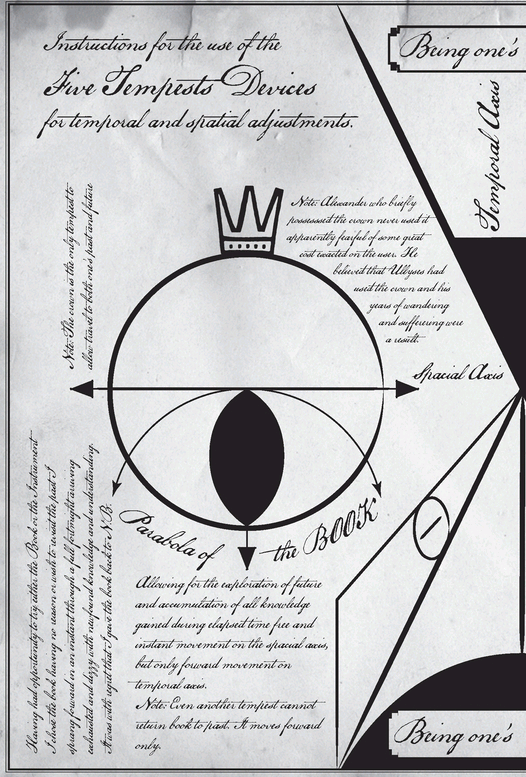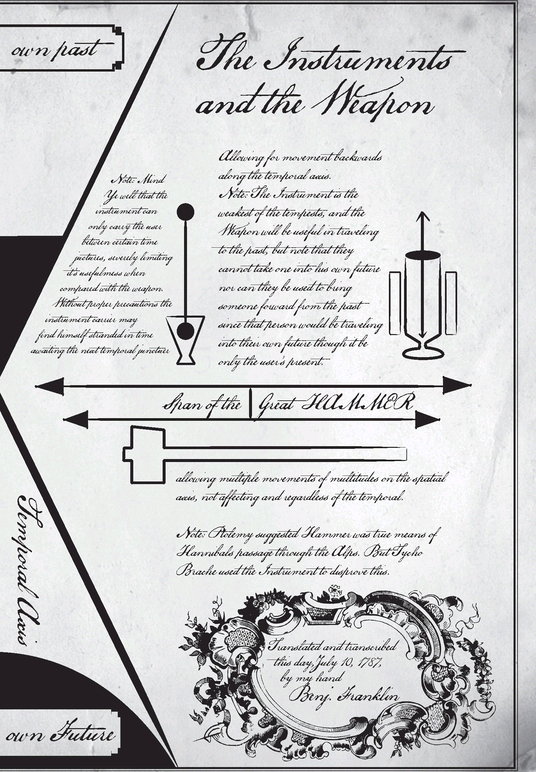Stonewall Hinkleman and the Battle of Bull Run (18 page)
Read Stonewall Hinkleman and the Battle of Bull Run Online
Authors: Sam Riddleburger

BOOK: Stonewall Hinkleman and the Battle of Bull Run
3.03Mb size Format: txt, pdf, ePub
The alcohol burns like crazy. And this is just for a couple of scrapes on my hand. Now I know why Cyrus passed out. But Tom doesn't seem to notice. In just a few seconds, I've got antibiotic ointment and sterile bandages over my cuts.
“Probably could have used some stitches earlier,” he says, “but too late now. You'll have some nice scars.”
He looks up at my face. “And it looks like you got off better than Dupree. Ambulance showed up a couple of hours ago and took him away.”
I can't help but grin a little. “Yeah, Cyrus did that!”
“Who?” Tom asks.
I picture Cyrus being carried into the barn, and just as quick my smile fades away.
“My kin,” I tell Tom.
Tom pats my leg. “You'd better start from the beginning. Tell me everything that happened, especially everything that involves Dupree.”
Tom listens to my story. I tell him everythingâabout Cyrus and Big Jim and Elmer. About everything Dupree did and didn't do, and everything he wanted to do. I tell him about how I came across an unexpected ally in Ashby.
“So that's who was with Dupree in the ambulance,” Tom interrupts. He strokes his beard. “Yes, that makes sense now. Ashby . . . as in Turner Ashbyâvery possibly the craziest officer I ever ran into. But don't you see, Stonewall? Too many people think this war was just something that happened in the past. But it's not just the past. It is our present too, and our future. It marks all of us today as clearly as you two are marked by your namesâStonewall and Ashby.”
He gives me a wink. “And you certainly could have found a worse-looking ally.”
I'm glad it's dark in the tent, because I feel my face blush. I go on with my story, about the captured cannons and Mrs. Henry and Mr. Robinson and Jacob. I mention General Bee and notice that Tom tears up. He completely believes the whole story. I know every other person alive would think I'm crazy, but he's actually smiling when I finish.
“Well done, young Stonewall. I knew you could do it. I knew you'd be smart enough to stop him.”
“But don't you think I messed things up? I mean, I wasn't supposed to be there. I could have changed history!” Jacob comes into my mind. I bow my head and whisper, “I did change history.”
Tom looks genuinely upset. “You mean Jacob?”
I nod.
Tom is silent for a moment.
“This is war, Stonewall. And there's always sacrifice in war. Perhaps you did change history. Perhaps for the better. Perhaps for the worse. I remember that after the battle several slaves were shot while trying to escape. Maybe one was your Jacob. Maybe you saved his life.”
I shake my head. “I've never read anything about that before.”
Tom shrugs. “It's not in any books. I've just got a pretty good memory.”
I try to take comfort in this. Maybe the Confederates on the stone bridge would have shot Jacob as he ran toward the Yankees. It's tough to say. Tough all around.
“Believe me, Stonewall, all peopleâbe they from my century or your century or the century of Jesus Christ himselfâhave at least one regret for something they've done in the past. I know I do. After seeing all I've seen, what this country has become and what it
could
have become had the war turned out differentlyâDupree's way, if you willâI regret I took up arms against the country I had sworn before God to defend. But I'm lucky too. With your help, I actually have a chance to redeem myself. And my country.”
could
have become had the war turned out differentlyâDupree's way, if you willâI regret I took up arms against the country I had sworn before God to defend. But I'm lucky too. With your help, I actually have a chance to redeem myself. And my country.”
“There are things in the present worth fighting for in the past,” I say.
Tom nods. “You at least understood that much.”
He takes a lemon from his pocket, holds it in his mouth, and with his good hand flicks open a knife and cuts the fruit in two. He offers me half and this time I take it. The sourness floods my mouth.
“But why didn't you tell me?”
“Would you have believed?”
“Good point,” I agree. “But why me?”
Tom spits out some pulp and tosses the rind to the ground. He looks at me, cocks his head, and gives me another wink.
“Let's just say I recognized you.”
“But I've never seen you at another reenactment.”
“You're right about that,” Tom says with a grin. “It wasn't at a reenactment. It was somewhere a bit more . . . ah, authentic, shall we say.”
It takes a second, but when it hits me I almost gag on the lemon. “You mean from the war! From the battle! You remember me from the real battle!”
He holds the smile for a second, but it fades and his eyes go hazy. He opens his mouth but doesn't speak. Finally he whispers, “I told you I had a pretty good memory.”
I feel my face go hot again. “I made such a fool of myself.”
Just as quick his blue eyes light up. “Don't you ever say that again! You did good. Real good. As good as any man I ever commanded.”
We stand in silence for a moment.
“Thanks, Tom,” I say. “I mean, uh, Stonewall.”
Now Tom looks down. “I'd rather you call me Tom,” he says. “I've always hated the name Stonewall.”
Ditto that.
“So the question is, my young conscript . . .” Tom says.
“So I'm still a conscript?”
He holds out the bugle.
“Not anymore. You're a soldier now. The question is, will you fight again if our country calls?”
Â
The morning is bright and warm as my parents and I pile into the car to ride home. I immediately lay my head against the back window and close my eyes. But I still can't go to sleep.
I couldn't sleep at all last night after coming back, even though the moonshine-drinking yahoos at the next campsite were passed out before midnight. Events from the day kept playing in my mind. Finally, I grabbed a flashlight and spent the rest of the night retracing my journey through the Battle of Bull Run. Here is where I met Cyrus. Here is Mrs. Henry's house. Here are replicas of the Union cannons we captured. Here is the foundation of Mr. Robinson's house. Here is the stone bridge.
At least now I don't have to ask my father where Uncle Cyrus got shot. Last night, I stood where it happened, and wondered if Cyrus survived.
I wonder that still.
Trying not to sound too sarcastic or strange, I ask Dad, “What happened to our uncle Cyrus after Bull Run?”
He looks at me through the rearview mirror with this curious expression on his face. It's like he's waiting for a wisecrack, so I try to stare back as innocently as I canâsomething I don't have much practice at.
“Like we've told you a dozen times before, he's cited for bravery in the Official Records by none other than your namesake, Stonewall Jackson himself!”
“Right,” I say. “For the Battle of Bull Run.”
“Bull Run?” Dad says. “You sure you're feeling all right? You mean the Battle of Antietam?”
Antietam! That was in 1862 . . . a year after Bull Run!
“Yes, sir,” Dad says. As if reading aloud, he says, “ âSergeant Hinkleman assumed command of the company and staunched the enemy's advance until the arrival of reinforcements . . .'”
He survived! He lived! And sergeant too! He was only a private at Bull Run! This is great! Heâ
“â . . . when he at last succumbed to his injuries and perished. ' ”
My head swims and my gut feels like it's been hit. Hard. “Perished?”
Dad gives me another strange look. “Stonewall, you okay?”
“Yes,” I say, trying to keep my eyes from tearing up. “I'd just have liked to have known him.”
My parents glance at each other. Just as quickly they turn back to the road, like looking too long may break whatever spell I'm apparently under. But the grin on my father's face lets me know they are proud of me.
We drive in silence for a while, and slowly my sadness becomes something else. Something like contentment. Thanks to me, Cyrus lived one more year and got to die a hero at Antietam. Beats a legacy of simply being shot in the butt.
I think about telling my parents what happened. But they might not be proud of that. They would probably make me go see that counselor again. And up my Ritalin prescription.
“Stonewall, I really appreciate your change in attitude,” my dad says a few minutes later. “I tell you what. Your mom and I have been talking. You're old enough to stay by yourself. In September when we go to the Antietam reenactment, you don't have to come.”
The Battle of Antietam. The bloodiest day of the Civil War. The bloodiest day in American history.
The day Cyrus dies.
I reach inside my pack and feel the cool metal of the bugle.
Stonewall's bugle.
“Oh, that's okay,” I say. “I'll go.”


Other books
Bewitched by Lori Foster
The Lord of Ireland (The Fifth Knight Series Book 3) by E.M. Powell
Girl Unknown by Karen Perry
Flag Captain by Kent, Alexander
Fenway Fever by John Ritter
Callisto by Torsten Krol
Under A Painted Sky (Spirit Warrior Series) by Jenna Roads
Fade by Robert Cormier